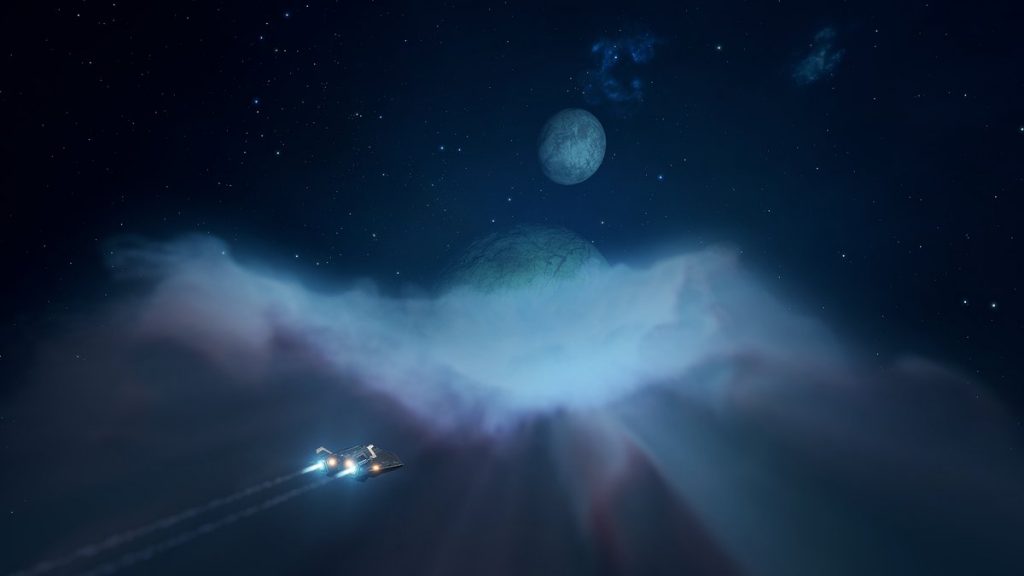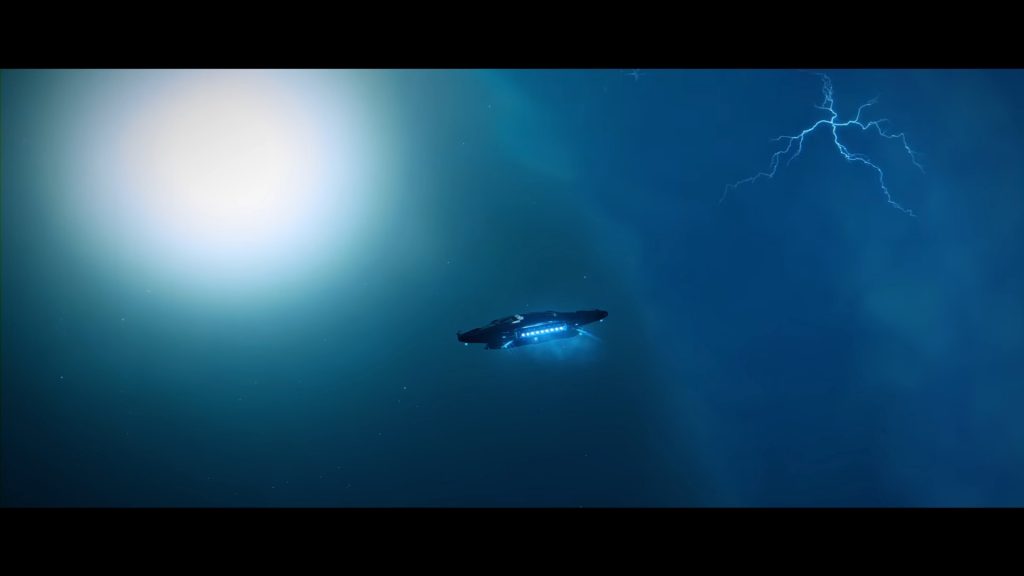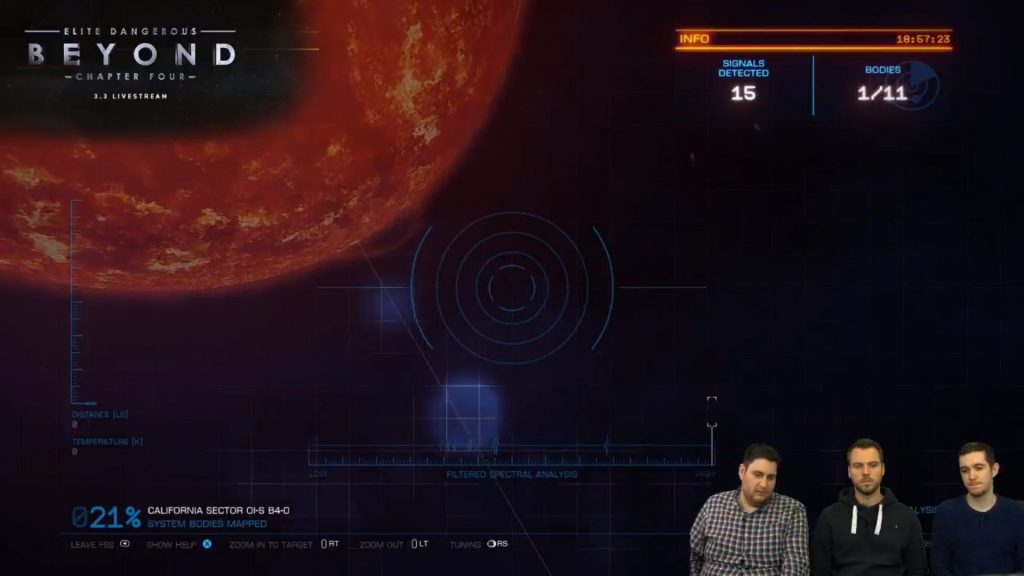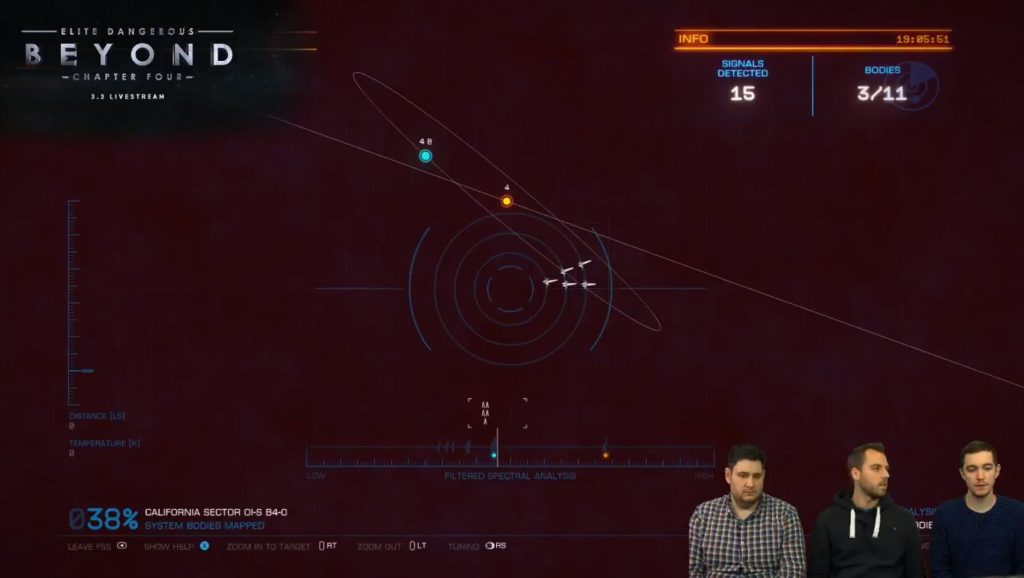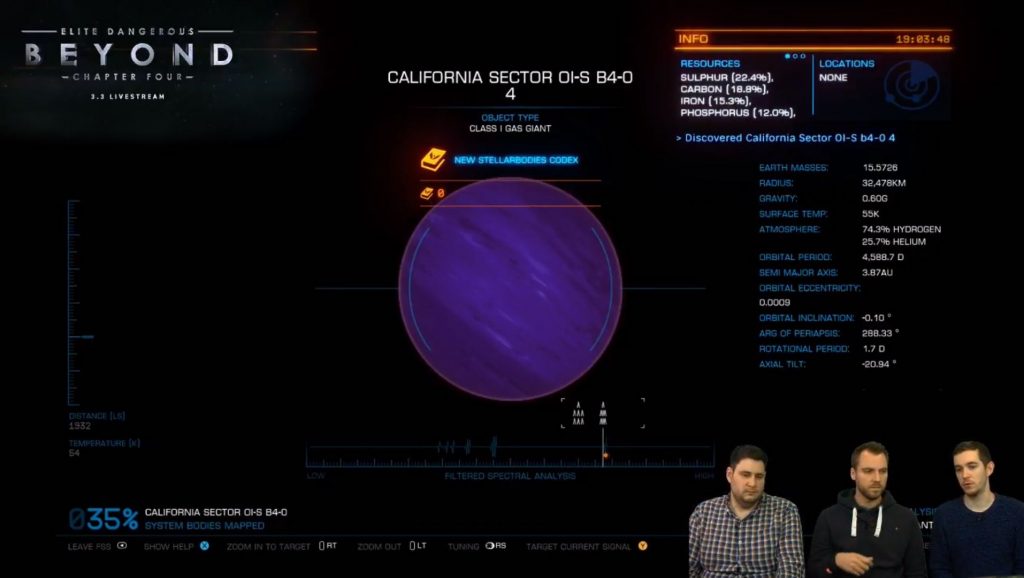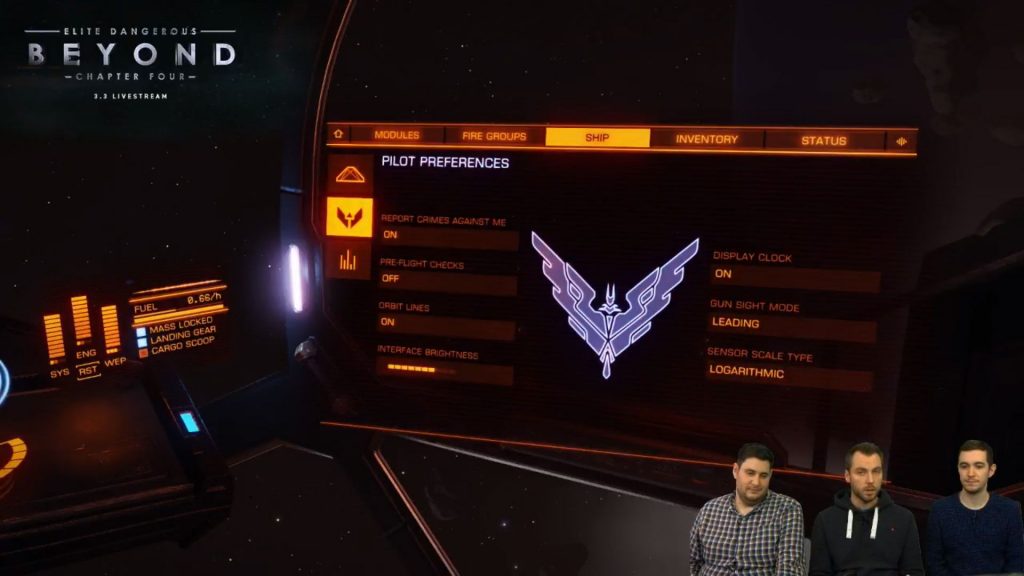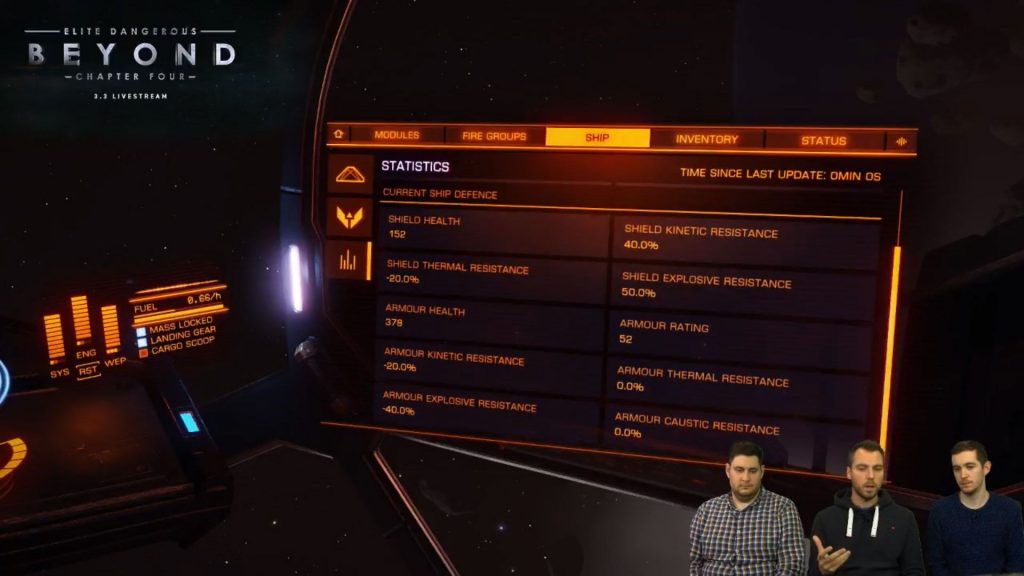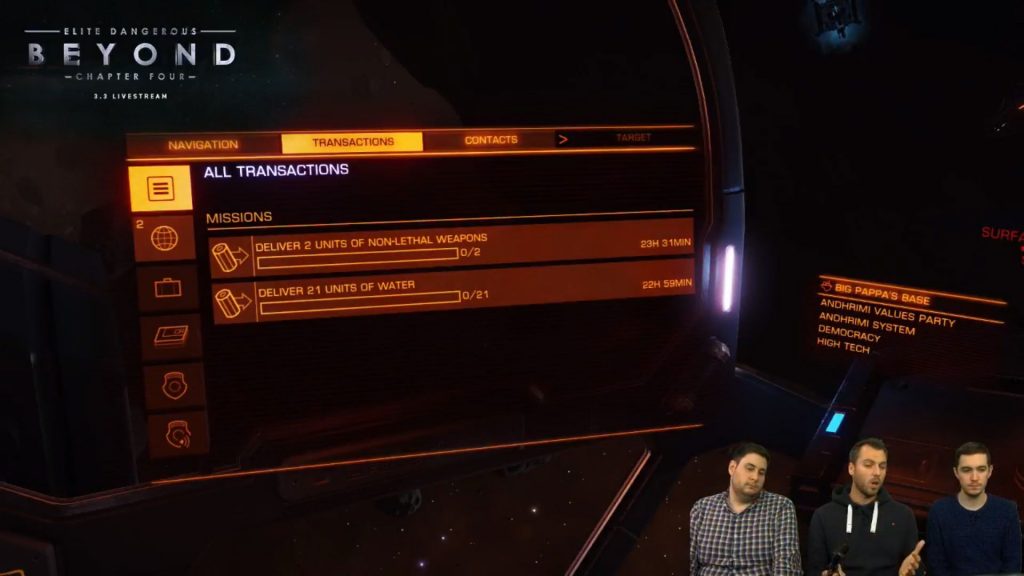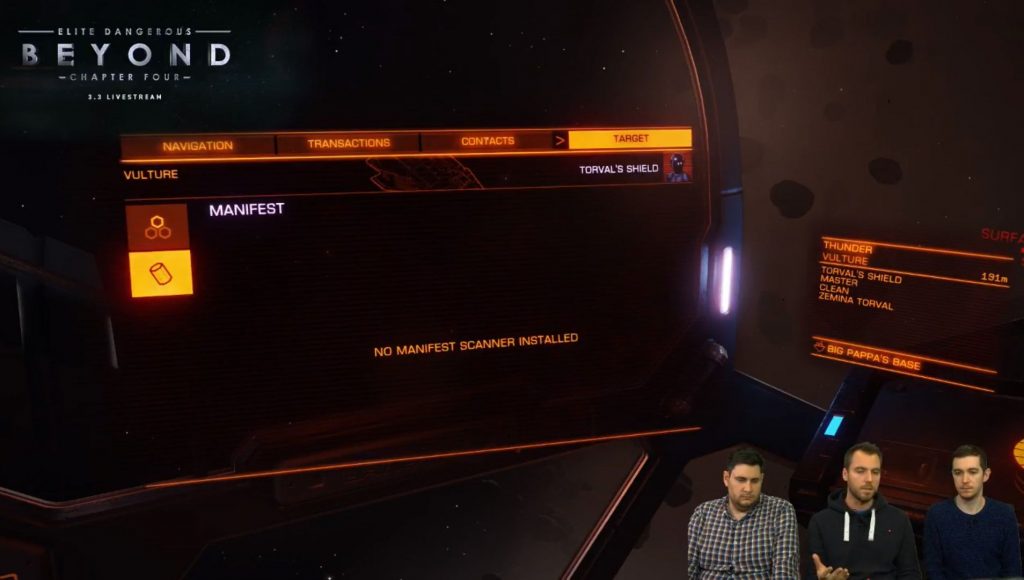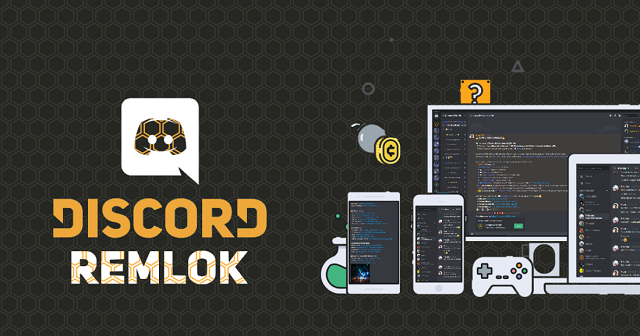This post is also available in: Français (French)
Hi everyone, this is a recap from the official forums, written by the Community team at Frontier. Huge props for creating such a great quality recap!
If you missed tonight’s content reveal livestream or just wanted a recap of all the content discussed, read the notes below from designer Adam Bourke-Waite and Executive Producer Adam Woods.
Remember that all of these changes will be featured in the beta out in October and could be subject to change.
SCENARIOS
Scenarios are new and enhanced versions of the Unidentified Signal Sources (USS) and fixed events that you may already have encountered. They are random events that can occur across the galaxy, providing you with additional opportunities to blaze your own trail the way you want to.
- Each Scenario is fully voice-acted, by a range of different actors.
- They feature bespoke UI, providing you information on what you need to do to engage with a Scenario and the rewards you will receive for doing so.
- There are specific Background Simulation (BGS) rewards for successfully completing a Scenario; such as increasing the security status of the faction involved.
- Some of the new and enhanced Scenarios include:
- Assisting distressed or stranded pilots.
- Engaging with new, fluctuating objectives in the new and improved Conflict Zones.
- Attacking or defending Megaships and Installations.
- Providing aid and assistance to damaged Megaships.
- …and more!
Background Simulation
The Background Simulation (BGS) is a representation of how the actions of all players, no matter on which platform or mode, impact the galaxy. The factions that inhabit these system battle for influence over the population and control of the starports, installations and outposts. Player actions can push these factions into various states; such as economy, security, health and influence. With concerted effort players can help grow a faction’s economy, destroy its security status, or help win a war.
As part of Beyond – Chapter Four, we’re making a few changes to the Background Simulation that will have a big effect on how you will manage and spread your faction’s influence across the Milky Way.
Multiple States
- From Beyond – Chapter Four onwards, factions will no longer be limited to a single state. Instead a faction could be in multiple states per system.
- For example, rather than being in ‘War‘ across all of the systems the faction is present in, the faction will only be at war in the single system in which the war is taking place.
- This new change means that the faction can also be in several different states at the same time. A faction could be in many different states, such as Bust and Civil Unrest.
- The Background Simulation is woven into the fabric of the galaxy, and so this change will impact everything from USS spawning to mission spawning. The systems your faction is present in may very well change up!
- The addition of multiple states means that managing an intergalactic empire will come with increased challenges. In order to make this more manageable we’ve added additional feedback to the game that should make interacting with the Background Simulation easier to understand.
- Part of this feedback includes how Local News works. We’ve expanded the faction summary news article, so that each faction has their own individual article which informs players of the states currently active in that system.
States Categories
We’ve broken a number of faction states into the following categories:
- Economic status – reflects the wealth of a system.
- Security status – reflects the safety of a system.
- Conflict – based on the system influence and represents the control of the assets and population in a system.
- Movement – based on influence and our new Happiness value these states determine the movement of a faction between systems.
- Other – Anything not included in the above, and reserved for future states that we are not ready to talk about!
A faction can have one state from each of these categories active at a time in each of the systems it’s present in.
Please find a summary of most of the states that will be coming in the Beyond – Chapter Four update (this information will also be available in-game):
- Lockdown – When a faction experiences a lockdown, the security rating of the system it controls temporarily increases and the system’s wealth temporarily decreases. Bounty hunting activity can shorten the lockdown period.
- Boom – Boom is usually the result of consistent trade profit and completed trade contracts. When a faction experiences a boom, the wealth of the system it controls temporarily increases, and trade missions completed in the system have double the effect on influence.
- Bust – When a faction experiences a bust, the wealth of the system it controls is temporarily reduced and the faction’s influence is temporarily diminished. Trade actions do not contribute to boom while a bust is active.
- Civil War – Civil wars occur when factions compete for control of major assets, such as starports. When a faction is involved in a civil war, the standard of living, development level and security level in the system it controls are temporarily reduced.
- Civil Unrest – Civil unrest is the result of illegal activity. When a faction is affected by civil unrest, the standard of living in the system it controls temporarily decreases, as does the system’s wealth.
- Famine – When a faction is affected by famine, the standard of living in the system it controls temporarily decreases. Combat activity has no effect on influence while a famine is active. Completing food-related trade missions can help bring a famine to an end.
- Outbreak – When a faction is affected by an outbreak, the standard of living in the system it controls temporarily decreases. Combat activity has no effect on influence while an outbreak is active. Completing medicine-supply missions can help bring an outbreak to an end.
- Election – Elections occur when two factions with a similar political structure resolve a conflict over ownership and influence within a system.
- War – Wars occur when a faction invades a star system controlled by another faction. For the duration of the war, the standard of living, wealth level and security level in the disputed systems are reduced. Combat activity between the two warring factions determines the outcome of the conflict. If neither faction succeeds in dominating the other, the war ends in a ceasefire.
- Expansion – Expansions occur when a faction successfully maintains a degree of influence over a happy population for a specified period of time. Expansion is costly, so when a faction expands, the wealth and development level of the system it expands from are temporarily reduced.
- Retreat – Factions are considered to be in retreat if their level of influence within a system drops below a certain level. If the faction’s influence remains low for a total of five days, the faction must leave the system entirely. If the faction manages to increase its level of influence, it remains in the system.
- Civil Liberty – The faction is enjoying a period of stability within this system, resulting in widespread happiness among the local population. Bounty hunting activity can help sustain the civil liberty period.
- Investment – The faction is enjoying a period of economic good fortune within this system, resulting in widespread happiness among the local population. Trade activity can help sustain the investment period.
Economy & Security
- For Economy and Security states we’ve added two new player-facing elements:
- Security Status – represented via a marker moving along a bar. As the marker enters certain sections of the bar, the faction moves into the related state.
- Economic Status – also represented via a marker moving along a bar. As the marker enters certain sections of the bar, the faction moves into the related state.
- Both can be found on your right-hand status panel and also in the Squadrons Allegiance page (which we will be talking about in the Squadrons livestream).
- As Commanders perform various in-game actions and activities, such as trading or completing missions, they will push the marker along one of these Security and Economic bars.
- Each area on the bar represents different states and when the marker reaches these areas, the faction will adopt that state.
- The center of each bar is a ‘no state’ region which represents a neutral state.
- As the marker on the Economic bar is pushed upwards, the faction can move into Boom and then Investment. The other end of the Economic bar consists of Bust and eventually… Famine.
- The Security bar consists of Lockdown, Civil Unrest, and a new state called Civil Liberty on the positive end. Civil Liberty represents a period of safety and freedom for the faction’s population.
Conflicts and Movement
- Movement states are based on Influence and work in a very similar way to how they did previously.
- For example, if a faction loses the majority of its influence, it can enter into a Retreat state.
- Conflict states trigger in the same way but winning a conflict has changed. This is explained in greater detail below.
Conflicts
- Wars, Civil Wars and Elections will now freeze the influence of both factions involved.
- The conflict between the two factions will be resolved weekly, following a process of winning victories on a daily basis.
- To claim a victory, players need to complete relevant missions handed out by their faction and take part in the newly revamped Conflict Zones.
- You can find information on how your faction is doing during the war, and the assets it has on the line, in the status panel.
- This information can also be found in the Squadrons Allegiance page.
- At the end of a week, the side that has won the most days wins the war!
Expansion
The new States have also influenced the way in which Expansion works.
- Expansion is a faction-wide concept and takes the following into consideration:
- The percentage of Influence of the faction per system.
- The Happiness of the faction within that same system.
- Happiness is a new concept and is based on the states that are active within that system.
- For example: a faction that has Civil Unrest, War and Bust occurring is not going to be the happiest, while a faction experiencing Civil Liberty and Boom will be much happier.
- To increase your faction’s happiness, you need to defeat negative states and push your faction towards positive ones.
- Large factions, with lots of influence across many happy systems will be more likely to gain the Expansion state.
- A faction in Expansion after a certain amount of time will attempt to expand from the happiest system that faction is present in. Therefore, you will be better able to coordinate your expansion efforts to ensure which system you want to expand from.
It’s worth noting that some of the gargantuan factions, led by a handful of people, will need to scale up their group in order to manage their existing holdings. With these changes, maintaining widespread factions will pose an added challenge, but we’ve introduced improved in-game BGS feedback to help coordinate your group’s efforts.
- There are chaotic and unpredictable states that can occur. These states, much like the real-world parallels, are out of your control. One of these states is Outbreak, a faction in outbreak will suffer negative economic and security effects, as well as many of the faction’s population becoming unhappy.
- Further information on all the factions’ active states can be found in the right-hand panel.
Populations, Installations and Megaships
For Beyond – Chapter Four, we’ve introduced a vast number of new Megaships and Installations.
- Some of these Megaships will have set routes (moving on the weekly tick) and when in a new system, will be under the protection of the controlling faction.
- If a Megaship jumps into your faction’s system, you should look after it because if it is attacked, your faction will feel negative Background Simulation effects.
- Installations have also been added. These are static assets that once assigned to a faction can be fought over during conflict states.

